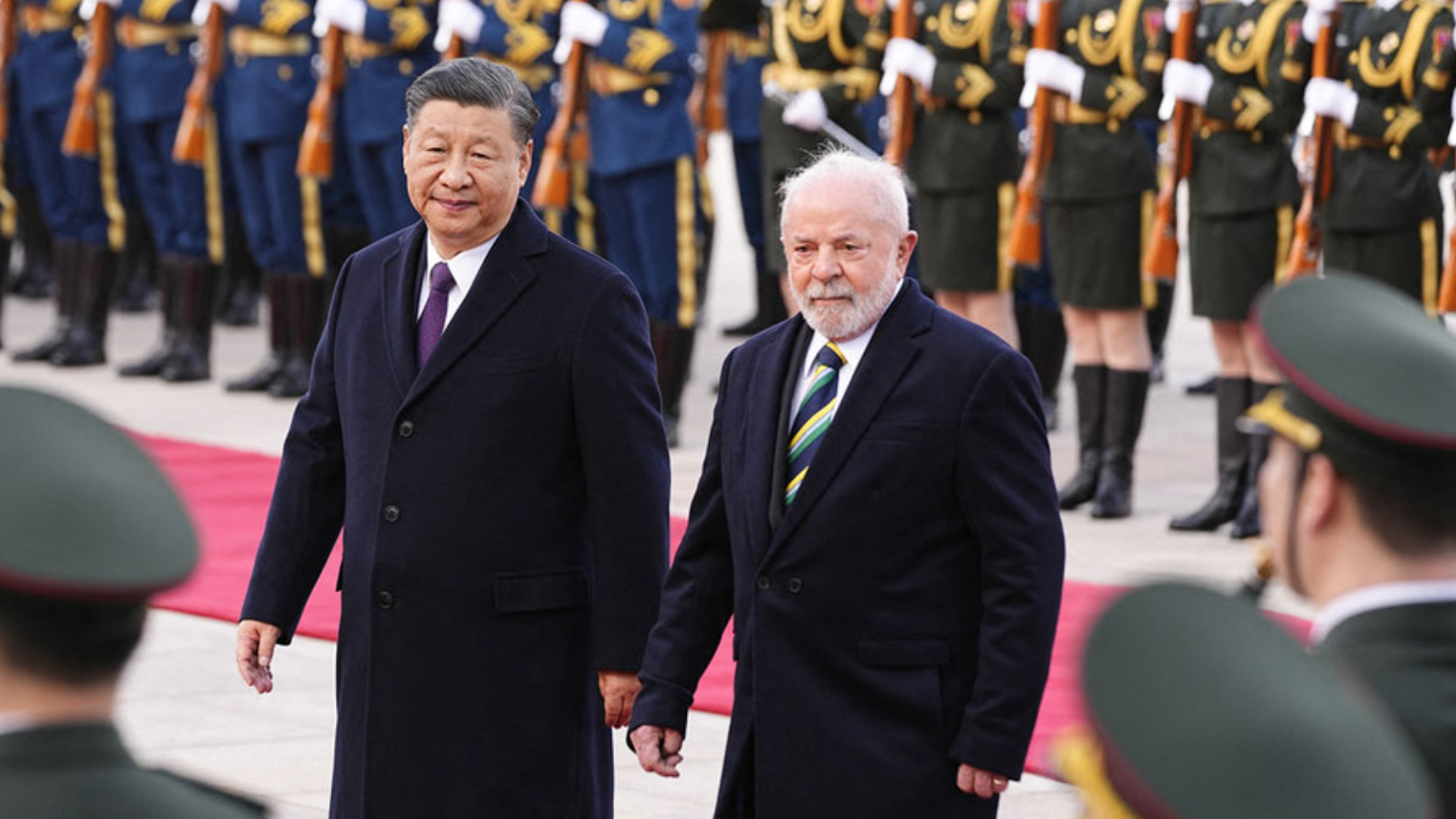The visit of Brazilian President Luiz Inácio Lula da Silva to China has aroused great interest in several regions of the world, and this is no coincidence. For some time now, China has been the largest trading partner of Brazil and several Latin American countries. For this reason, it is natural to expect that this economic partnership will lead to closer cultural, political, and diplomatic ties between the countries and regions in the near future.
Moreover, specialists and recent studies point to a significant gap between the importance of economic relations and partnerships between the two countries and the strengthening of political and diplomatic ties. This gap has been accentuated, in the case of Brazil, by some misguided initiatives and statements of recent administrations.
Currently, perhaps, more important than these economic ties between the two countries is to emphasize that they share a common heritage and a tradition of respect for the national sovereignty of peoples through the predominance of peaceful and diplomatic solutions to international problems; and to the detriment of military interventionism and the “Cold War” mentality of some countries. That mentality, even today, with increasingly sophisticated means of destruction, insists on stimulating tensions and the possibility of armed confrontation throughout the world.
This vocation for peaceful development and commitment to multilateralism in international relations was reinforced by the recent appointment of the former president of Brazil, Dilma Rousseff, as head of the New Development Bank (NDB), the financial institution of the BRICS. This event is of the utmost importance at a post-pandemic time when the world economy is undergoing huge uncertainties and turbulence.
In this context, economic integration between countries, especially in the global South, becomes even more relevant and strategic. This integration has required the creation of financial and monetary mechanisms to make this interaction even faster and more advantageous for the parties concerned. And, recently, within the principles of win-win relations that have guided China’s trade exchanges with other regions of the world.
In short, it seems promising for Brazil’s national interests to see increasingly accelerated integration with China through infrastructure projects, the fight against social inequalities, and the creation of financial mechanisms that will make these exchanges even stronger and more beneficial for both countries.
Likewise, in an increasingly multipolar world, it is essential that peace negotiations prevail over the stimulation of a climate of belligerence. It is also vital that such a mentality prevails over initiatives of countries that, under the pretext of “defending democracy”, only lead to increased political instability through the expansion of alliances and military bases, as well as investments in technological tools with low social return and low potential for creating positive externalities for investments capable of stimulating a more inclusive and environmentally friendly economic development.
For this reason, the challenges for greater integration between Brazil, China, and the global South should not be underestimated at any time. Forces opposed to the consolidation of greater multilateralism at the international level will tend to use all means to obstruct such integration. Not excluding the progressive increase in the climate of belligerence and the intensification of investments in military bases and war equipment around the world.
Therefore, an agenda that strengthens multilateralism must seek dialogue with all forces interested in peacemaking. In this sense, the agendas discussed during President Lula’s visit were very positive. It covered different topics of interest to the business community and to both populations, with the idea of signing trade agreements comprising a broad agenda, including trade intensification, investments in infrastructure and environmental projects, industrialization projects, clean and renewable energies, climate change, among other issues foreseen for negotiation between the two countries.
This agenda will not be easy to implement and will require a strong effort of joint planning and articulation between Brazil and China; in addition to overcoming the obstacles that will surely stand in the way of a closer relationship between them.
Finally, it should be noted that far from a “clash of civilizations”, what we are witnessing today in the international arena is the confrontation between two different perspectives that are emerging for the future of humanity, perspectives that cut across different regions and countries of an increasingly globalized and economically integrated world.
In this context, the deepening of dialogue and relations between Brazil and China can contribute to the establishment of a climate of peace and greater economic integration between sovereign countries and peoples. The difficulties to be faced should not be underestimated, but, on the contrary, should serve as a stimulus for the challenges ahead.
This text was originally published on the REDCAEM website.
*Translated from Spanish by Janaína Ruviaro da Silva













